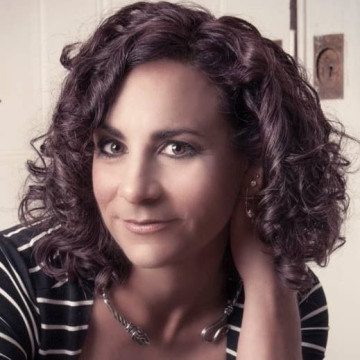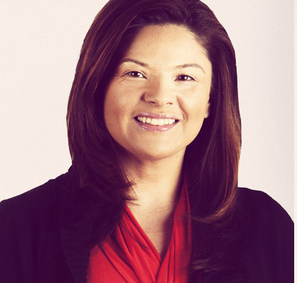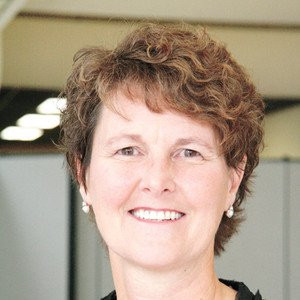It’s All About Education: A Broader Definition of Education
Wednesday, June 03, 2015
“Don’t let schooling interfere with your education.” - Mark Twain
I’ve been thinking a lot about this quote recently. We tend to think about the field of education as something that happens primarily in schools. When we talk about education, we generally mean the pursuit of academic achievement: reading, math, writing, science and social studies. Those subjects, however, more accurately fall under the heading of “formal schooling.”
Dictionary.com defines the word education first and foremost as “the act or process of imparting or acquiring general knowledge, developing the powers of reasoning and judgment, and generally of preparing oneself or others intellectually for mature life.” Many people, including most teachers, would agree with this broad definition of education. (This is one reason why so many educators rail against standardized testing.)
GET THE LATEST BREAKING NEWS HERE -- SIGN UP FOR GOLOCAL FREE DAILY EBLASTAnd it seems that more and more parents are choosing to give their children experiences that will broaden their perspectives and deepen their understanding of the world outside of school. Some families send their children on exchange programs; some enroll them in community service programs or service trips; some immerse their children in other cultures.
My son decided to spend his junior year of high school in Italy. We researched various programs with him and eventually settled on AFS Intercultural Programs. He ranked the countries he’d like to visit and was matched with a family in Rimini, a resort town on the Adriatic coast. Although he attended the local Italian public school (which has a significantly more demanding schedule than most American schools), the biggest lessons he learned were unrelated to the curriculum.
He learned to get along with people from other cultures, even when they spoke different languages. He learned to be responsible for himself and to navigate several forms of public transportation. He learned to advocate for his own needs and locate assistance when required. He forged significant and lasting relationships with people from all over the world. Finally, he gained a deeper appreciation for his own culture and his own family.
My friend Karen spent the last year traveling the world with her 12-year-old son, Sam. They have visited more than 20 countries throughout Africa, the Middle East, the South Pacific, Asia, and Europe. Karen wanted her son to “to see the people, the landscapes, the animals, the natural wonders… and to learn from it, what is different, what inspires, what saddens us, what we can learn, what we can share.”
While they were traveling, Sam kept up with his formal schooling with a homeschool program approved by his teachers (which included posts to a blog of his own). As a part of their trip, Sam and his mother completed at least a week of service in each area of the world that they visited. They worked with AIDS patients in Zimbabwe and students in Tanzania, and volunteered with people suffering from leprosy in India – helping Sam to appreciate not only the many blessings he has but also the important role education plays throughout the world.
I’ve also read about several families who have decided to embark on lengthy excursions with their children. The Wilkes-Silverman family, with three children ages 10 – 14 set out to visit 10 countries over six months. Mark Levin and Jennifer Flackett shared their family’s experience, which they call “A Year to Think,” on Huffington Post. And they are not alone! If you Google, “family traveling the world,” you will find dozens of similar blogs and accounts.
Some families have embraced a nomadic lifestyle as they’ve committed to using the world as their classroom. Behan and Jamie wanted to build lifelong memories with their three children; they decided to permanently live aboard their boat while cruising the world. The result? “Experiencing other cultures, to learn, share, find our differences and commonalities are one of the joys of cruising for our family.”
In part to meet this growing desire for global learning, many opportunities exist to offer students shorter-term meaningful experiences in the world. There are numerous youth service trips through companies such as The Road Less Traveled or Global Leadership Adventures. There are semester-long programs, such as those available through the Island School, the Mountain School, or Semester at Sea.
For unschooling or homeschooling families, or for students taking a gap year, Blake Boles runs Adventure Semester. This program specifically focuses on helping teenagers to acquire real-world skills, become more self-motivated and self-directed, and to “build a life of freedom, adventure, and meaningful work.” Participants are challenged to use their wits and their creativity to complete all kinds of tasks that will help them to be successful in life.
To me, all of the experiences described above help students to become citizens of the world. The children who go on these adventures tend to be more accepting of other lifestyles, more appreciative of other cultures (and their own culture), and more thoughtful about the impact they have on their environment (through both their use of resources and their relationships). If we were to use field trips and project-based learning creatively perhaps we could open up the world to many more students.
What lessons from these different views of education could we incorporate into formal schooling to make it more meaningful? Is there a way that we could make schooling a part of lifelong education, rather than the definition of education? How would you define education?
Lauri Lee is an independent consultant with over twenty years of experience in both public and private education, with learners from infants through adults. With experience in teaching, marketing, communications, social media, development, admissions, and technology, she is able to synthesize many of the issues facing our educational system today. She lives in Providence, RI with her family, a big dog, and a small cat. She blogs at http://www.AllAboutEducation.net; and you can follow her on Twitter at @fridovichlee.
Related Slideshow: RI Experts on the Biggest Issues Facing Public Education
On Friday November 22, the Hassenfeld Institute for Public Leadership at Bryant University, the Latino Policy Institute of Roger Williams University, the Rhode Island Association of School Committees, the Providence Student Union, and RI-CAN: Rhode Island Campaign for Achievement Now will host Rhode Island leaders in the public and nonprofit sectors for a symposium on "the civil rights issue of the 21st century, adequacy and equity and the State of Education in Rhode Island."
Weighing in on the the "three biggest factors" facing education in the state today are symposium participatnts Gary Sasse, Founding Director of the Hassenfeld Institute for Leadership; Christine Lopes Metcalfe, Executive Director of RI-CAN; Anna Cano-Morales, Chairwoman of the Board of Trustees, Central Falls Public Schools and Director, Latino Policy Institute at Roger Williams University; Tim Duffy, Executive Director, RI Association of School Committees; and Deborah Cylke, Superintendent of Pawtucket Public Schools.
Related Articles
- It’s All About Education: Free College Tuition - Why Just Community College?
- It’s All About Education: Schools that Harness the Power of Nature
- It’s All About Education: A Recipe for Disaster - Common Core Standards for Kindergarten
- It’s All About Education: Inequities in the College Admissions Process
- It’s All About Education: Is the American Dream a Pipe Dream?
- It’s All About Education: Social Promotion is Not the Problem
- It’s All About Education: Some of Education’s Best Ideas from 2014
- It’s All About Education: Can Universal Preschool Close the Achievement Gap?
- It’s All About Education: How Can We Ensure that Kids Have Great Teachers?
- It’s All About Education: The High Cost of Higher Education
- It’s All About Education: The Rise in Kindergarten Readiness Testing
- It’s All About Education: How Vaccination Affects Schools – and Society
- It’s All About Education: Changing Lives with School Lunches
- It’s All About Education: How Poverty Impacts Brain Development and Learning
- It’s All About Education: Making a Commitment to Rhode Island’s Children
- It’s All About Education: Re-Imagining Our Educational System
- It’s All About Education: Can Education Drive Social Change?
- It’s All About Education: High-Quality Early Learning: Necessary For All
- It’s All About Education: School Choice - Vouchers and Tax-Credit Scholarships Don’t Pay
- It’s All About Education: Failure to Launch - It’s Not Just a Movie
- It’s All About Education: How Breakfast Could Help Close the Achievement Gap
- It’s All About Education: Choosing the Right School for Your Child
- It’s All About Education: After School Programs Make a Difference
- It’s All About Education: Learning Life Skills at Hope High
- It’s All About Education: The Arts, Education, and Transformation













